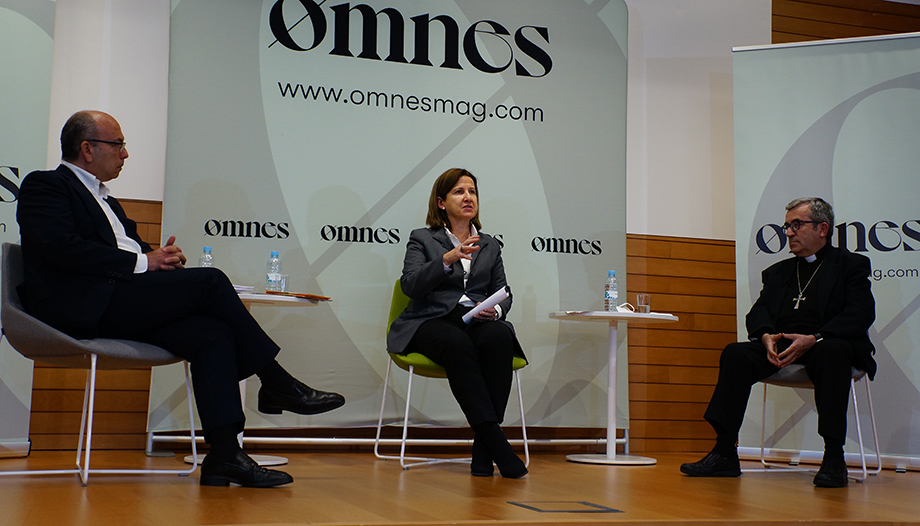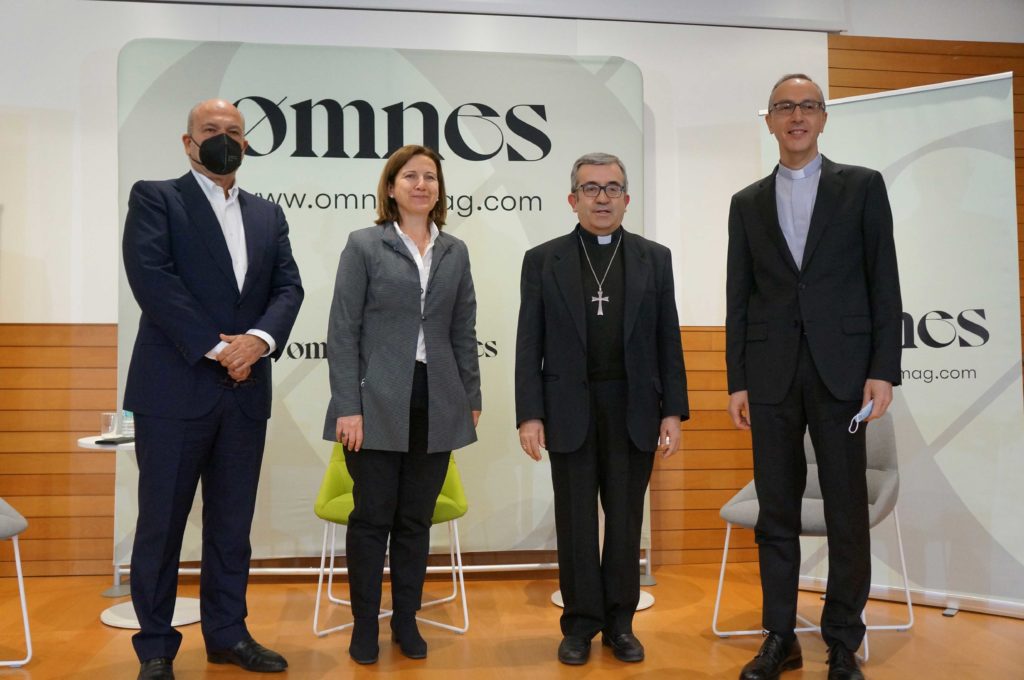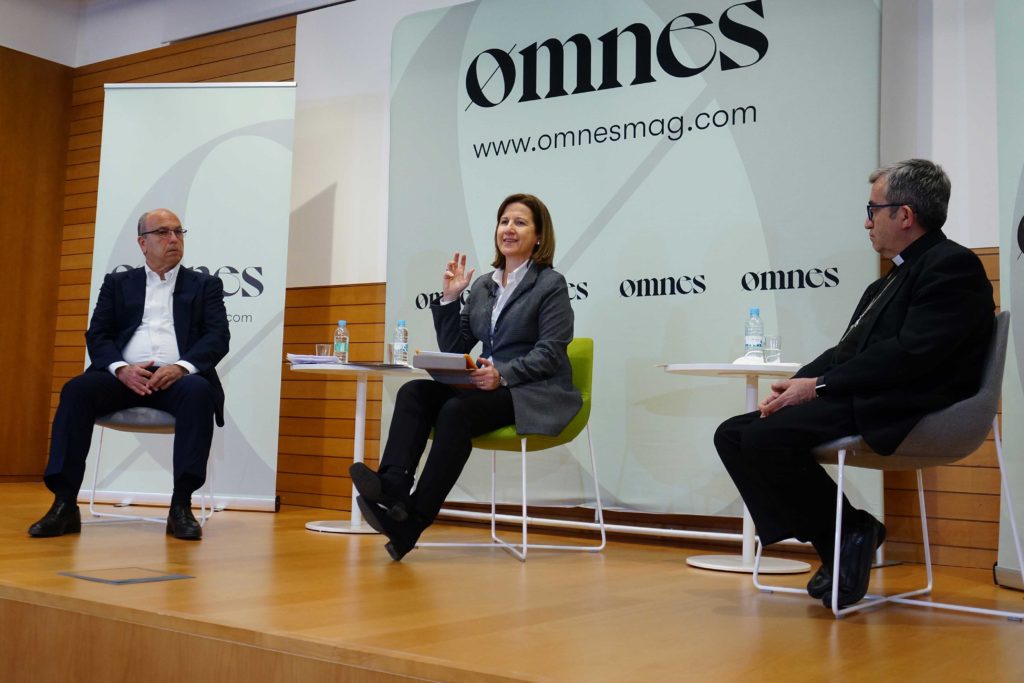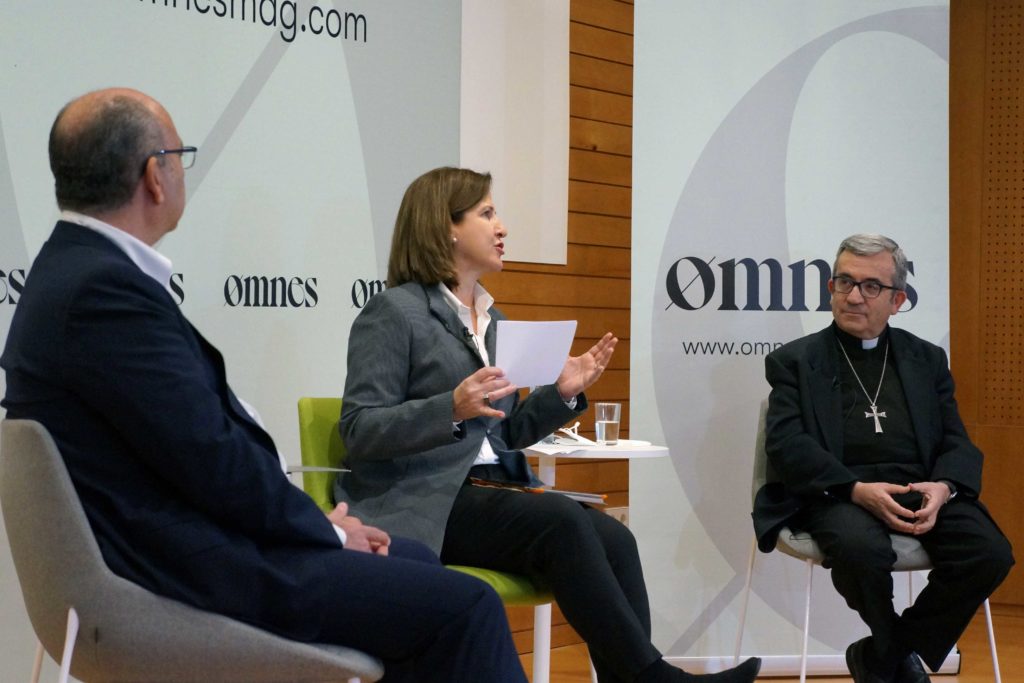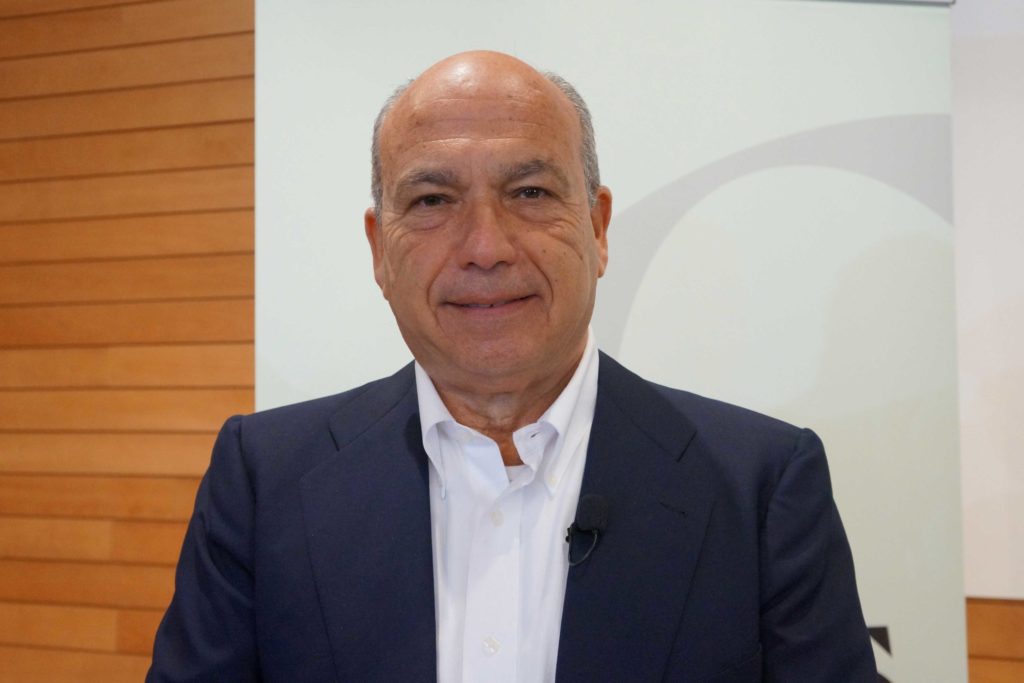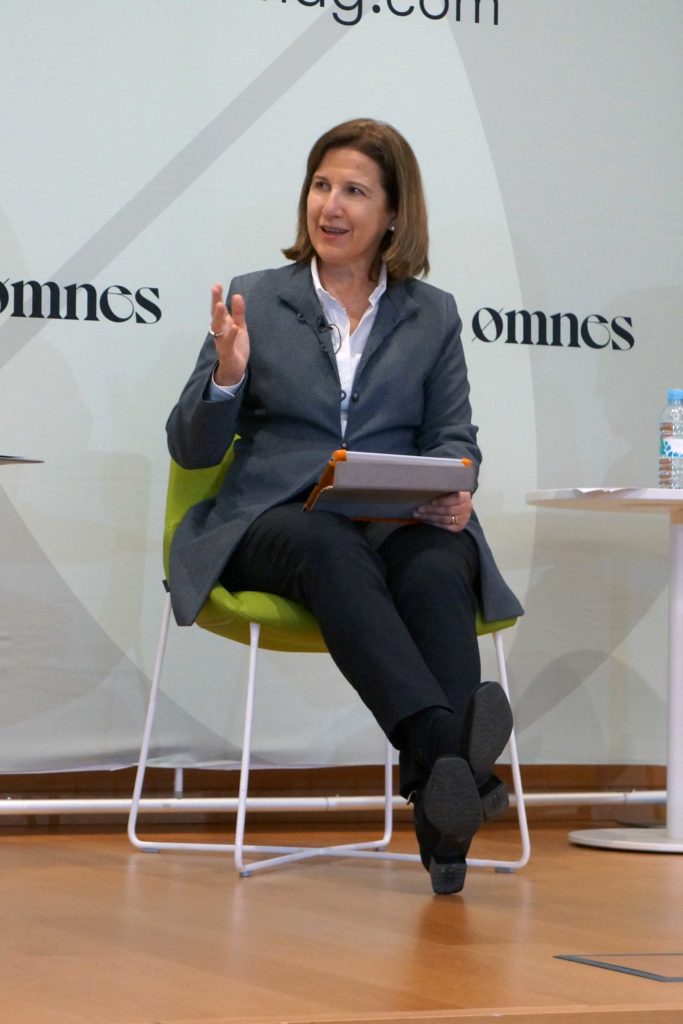Msgr. Luis Argüelloauxiliary bishop of Valladolid and secretary general and spokesman of the Spanish Episcopal Conference (CEE) and former president of the Federation of Jewish Communities of Spain, Isaac Querubwere the speakers at the Omnes Forum moderated by Montserrat Gas, professor of Law at the UIC. Mohamed Ajana, secretary of the Islamic Commission of Spain, who was to participate in the meeting, was unable to attend due to unforeseen circumstances.
The Forum, raised with the theme "What model of secularism do we want for Spain? Religions in the face of secularism proposals." began with a reflection by Montserrat Gas on the role of the state in the face of religion and positive secularism.
In this line, Gas, using a sports simile, pointed out how the role of the state would be comparable to that of a Federation, which ensures compliance with the rules and the cleanliness of the game but "does not take part in the game by opting for one of these confessions or promoting a kind of state religion".
As to whether we have in Spain a satisfactory system of relations with the confessions from the State, Isaac Querub He wanted to point out that "What we ask of the State is to promote the coexistence of people regardless of their religious convictions and to facilitate the free exercise of beliefs".
This idea has been very present in the successive interventions of the former president of the Spanish Jewish communities for whom the Spanish model, adopted since the Constitution, "is admired all over the world and it works. And if it works and satisfies the different confessions, why should we change it?
Luis Argüello, described as satisfactory the current framework of the confessions in the Spanish state. The Secretary General of the EEC wanted to recall that "it is necessary to organize coexistence, we know that those of us who live together are different as a group and that from this difference we define the common good. The state appears at the service of this. That is why I see more and more this issue of positive secularism as ensuring the coexistence of different peoples". He also wanted to emphasize that "human beings have the innate desire to share our conscience of good with our fellow citizens, what we Christians call being missionaries, and we must live this without it becoming a stratagem for the pursuit of power".
The danger of single thinking
Both speakers agreed on the danger of the single thought that secularist positions seek to impose, which ends up being another kind of fanaticism. In this line Isaac Querub stated that "when the religious factor or God is fanatically eradicated from society, it is quickly replaced by the cult of the individual and we know what happens. When God is killed we have the cult of the personality and we end up killing people". An idea fully shared by Bishop Argüello, who wanted to warn of two "shortcuts" that can be used by believers and end up generating violence of some kind: fundamentalism, of wanting to impose one's own conviction and, on the other hand, absolute relativism, wanting to turn every desire into a law.
Concerns about the proposal for a civil religion
Asked about the recent letter sent by the Minister of Culture and Sports, José Manuel Rodriguez Uribes, in his capacity as Secretary of Secularism of the PSOE, to the provincial executives of the socialist party, under the title "Laicidad del PSOE" (Secularism of the PSOE), we asked the following question "Secularism, religion of freedom.". Bishop Argüello wanted to point out that "the worrying thing is to see how a civil religion is proposed by the state that also offers some 'fruits'". For Argüello "it is legitimate for a political party to have a program and offer it to society. What seems worrying is that it is given a content of civil religion because then the State offers a religious proposal of substitution and ceases to be neutral". Isaac Querub, for his part, emphasized that the content of the letter "is far from the positions that have been expressed to us in the meetings with the government". Both speakers agreed that they would have liked a meeting or consultation of the mixed commission of government and religious entities on matters such as the closure of places of worship during the pandemic or the processing of laws such as the LOMLOE or the recent one on euthanasia.
Both Luis Argüello and Isaac Querub, however, wanted to make a call to hope to show the irreplaceable role of the religious fact and the valuable contribution of the different confessions in a fruitful dialogue for the progress of society.
The meeting took place in a semi-attendance manner, complying with the pertinent sanitary safety measures, in the auditorium of the Villanueva University of Madrid and was rebroadcast through Youtube. In-person and virtual attendees were able to send their questions to the speakers via Whatsapp or the channel's own chat.




